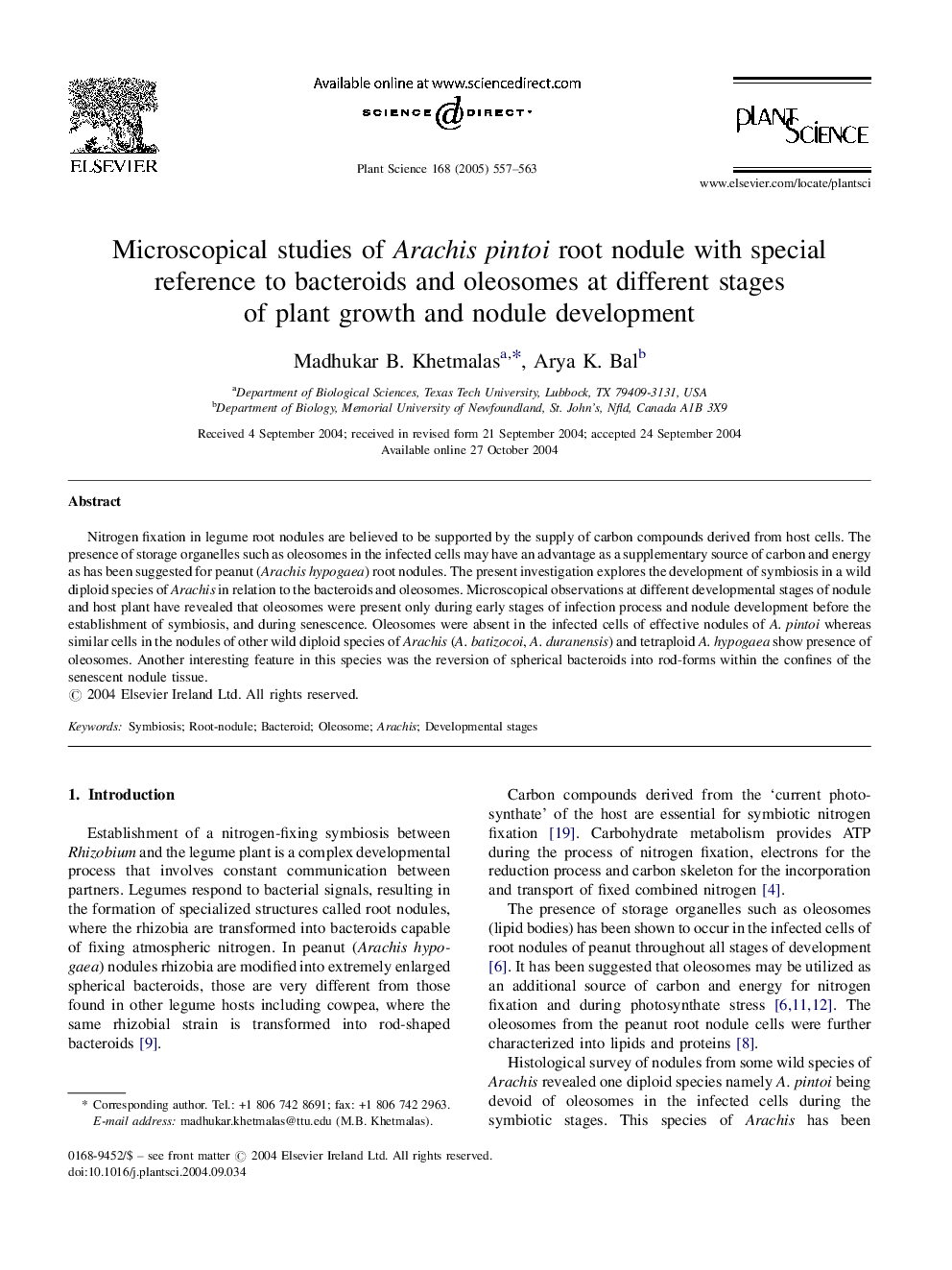| Article ID | Journal | Published Year | Pages | File Type |
|---|---|---|---|---|
| 10840805 | Plant Science | 2005 | 7 Pages |
Abstract
Nitrogen fixation in legume root nodules are believed to be supported by the supply of carbon compounds derived from host cells. The presence of storage organelles such as oleosomes in the infected cells may have an advantage as a supplementary source of carbon and energy as has been suggested for peanut (Arachis hypogaea) root nodules. The present investigation explores the development of symbiosis in a wild diploid species of Arachis in relation to the bacteroids and oleosomes. Microscopical observations at different developmental stages of nodule and host plant have revealed that oleosomes were present only during early stages of infection process and nodule development before the establishment of symbiosis, and during senescence. Oleosomes were absent in the infected cells of effective nodules of A. pintoi whereas similar cells in the nodules of other wild diploid species of Arachis (A. batizocoi, A. duranensis) and tetraploid A. hypogaea show presence of oleosomes. Another interesting feature in this species was the reversion of spherical bacteroids into rod-forms within the confines of the senescent nodule tissue.
Related Topics
Life Sciences
Agricultural and Biological Sciences
Plant Science
Authors
Madhukar B. Khetmalas, Arya K. Bal,
